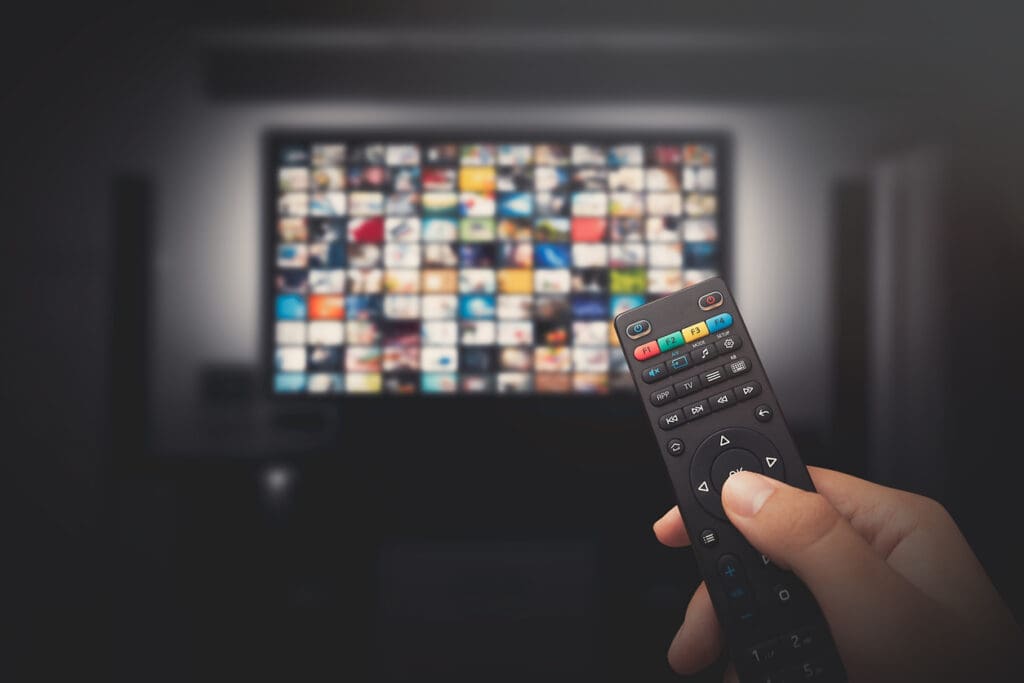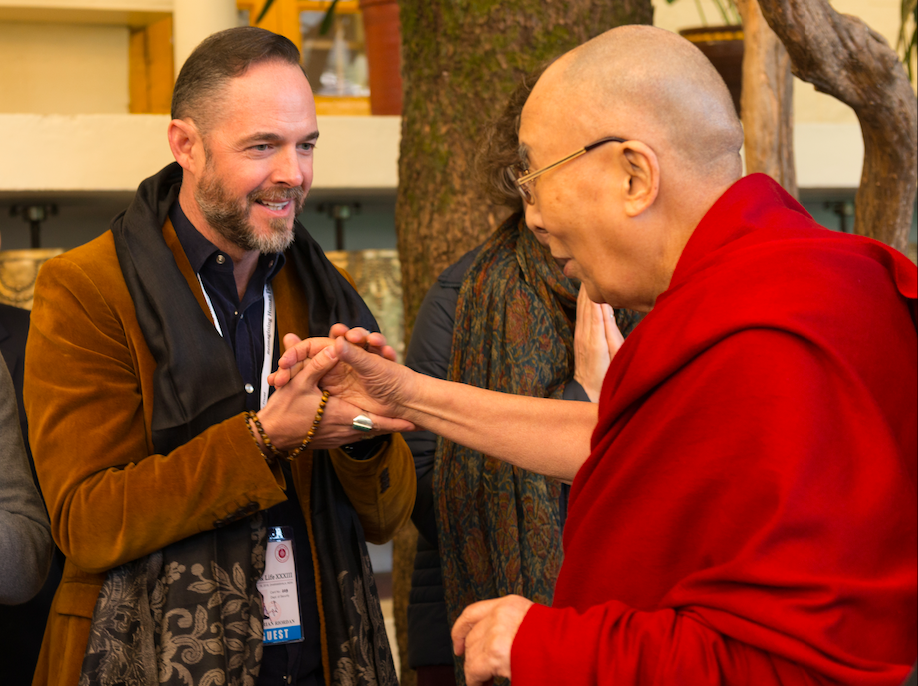
Most would agree, today’s media diet is lacking in nutrition. Thanks to globalization and advancing technology, viewers—whether in Nairobi, New York, or New Delhi—now watch the same film premieres on the same night. This boom in the entertainment industry has many asking whether we have a responsibility to produce content that contributes to both individual and societal well-being. This is a question driving Brian Riordan as co-founder of the Hollywood Compassion Coalition.
Brian, a two-time Grammy and four-time Emmy Award winning sound mixer, producer, and musician, says “hungry people will eat what you feed them, so we can either provide content that is doing them a service or a disservice.” The advent of Netflix and other streaming services and the availability of binge-worthy programming in the midst of the pandemic has only fueled consumption of digital media, leading Brian to ask what could be done to incentivize the industry to produce content that inspires positivity, altruism, and compassion.
The roots of Brian’s interest in the impact of the entertainment industry can be traced to the 2018 Mind & Life Dialogue, “Reimagining Human Flourishing,” in Dharamsala, India. “It was a life changing trip,” says Brian, adding that the community of researchers, changemakers, and contemplatives hosted in the Dalai Lama’s temple opened his eyes to what was possible through cross-disciplinary dialogue.
Brian ventured to India for many reasons, including the hope of finding what was next in his career. With decades spent in the sound, film, and television industry, and after successfully building a business in Los Angeles, he had grown weary of the entertainment system. But during the Mind & Life Dialogue, Brian realized he was right where he needed to be.

“Because the pipeline [for consuming content] is now so vast,” he says, “our responsibility has to rise to the same level.” If more people are consuming content faster and in larger quantities, we have to upgrade the ingredients or else we’re going to have more troubled minds, he points out.
The Hollywood Compassion Coalition’s first goal is to bridge science and storytelling to better understand how content impacts human thought and behavior. Co-founder Natalie Conneely, an award winning actress, producer, and director—who worked for the Dalai Lama Fellows to build a global network of ethical leaders—points to recent examples of storytelling that opens minds and transforms perspectives. These include Pixar’s “Soul” and Participant Media’s “Roma” and “Judas and the Black Messiah.”
The Hollywood Compassion Coalition’s first goal
is to bridge science and storytelling to better understand
how content impacts human thought and behavior.
The power of entertainment to influence our collective interests and behaviors is also reflected in the popularity of “The Queen’s Gambit” on Netflix, says Natalie, with chess set sales following the film’s release jumping 125 percent.
To better understand these effects on our emotions, psychology, and behavior, the Hollywood Compassion Coalition will foster dialogue between social scientists, creatives, and executives from Hollywood and elsewhere to share these learnings and influence the entertainment industry as a whole.
Content that will inspire positivity, altruism, and compassion “doesn’t necessarily mean lighthearted, happy content,” Brian clarifies.
Natalie says that even films like Schindler’s List that expose the darkest side of humanity can also elevate our capacity for goodness. The story of Oskar Schindler reflects Director Steven Spielberg’s talent for “tapping into our ability as human beings to have compassion for another regardless of their religion, race, and appearance,” says Natalie.
Inspired by Mind & Life and the Dalai Lama, Brian and Natalie know how important dialogue can be in catalyzing change through conversation. “In the industry,” Natalie says, “there are so many siloes where people work separately from each other. Sometimes even people in the same film don’t ever meet,” so it’s vital to nurture conversations that “bring individuals together around this kind of intentional creation.”
As a young non-profit organization, the Hollywood Compassion Coalition is still building its board of directors, meeting with advisors, and developing a foundation before designing and launching its first study. Ultimately, it seeks to spark conversations focused on sharing research, data, and understanding, with the hope of catalyzing more “nutritious” content that reinforces our shared humanity.
Interested in joining the Hollywood Compassion Coalition and their mission? Sign up for their digital newsletter, use their contact form to reach them directly, and consider making a donation to their work.

